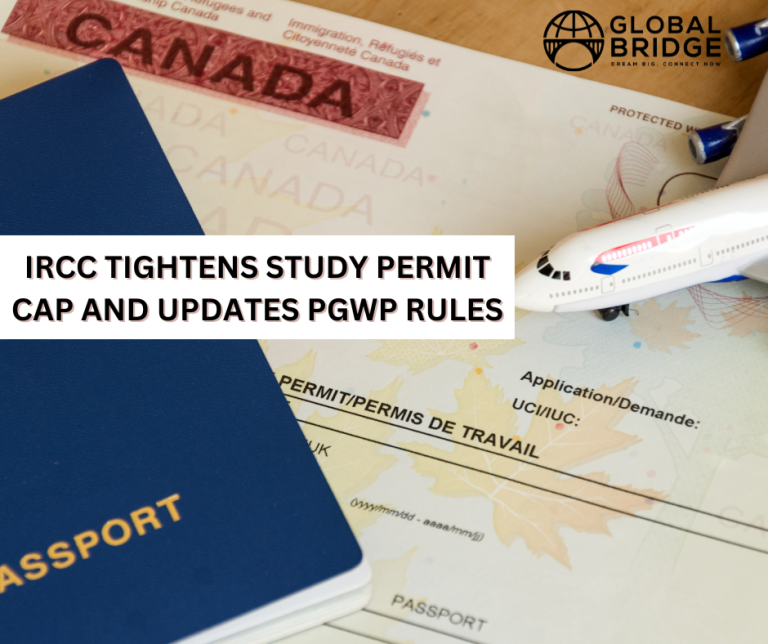Canada is tightening its temporary residence programs to manage increasing volumes and adapt to a softening labor market. Key changes include a reduction in international student study permits, stricter Post-Graduation Work Permit (PGWP) eligibility, and more rigorous employer compliance checks. Additionally, work permit eligibility for spouses of foreign workers will be limited, and visa integrity measures will be enhanced. These actions aim to maintain the integrity of Canada’s immigration system while meeting labor market needs and protecting vulnerable groups.

1. 10% reduction on Study Permit in 2025
For 2025, Canada plans to reduce the number of international student study permits issued to 437,000, which represents a 10% decrease from the 2024 target of 485,000. The intake cap will then be stabilized for 2026, keeping the number of permits issued the same as in 2025.
2. Updates to the Post-Graduation Work Permit (PGWP) Program
Graduates from public college programs will continue to qualify for a Post-Graduation Work Permit (PGWP) of up to three years if their studies are in fields linked to long-term labor shortages. Starting November 1, 2024, PGWP applicants must meet minimum language proficiency standards: Canadian Language Benchmark (CLB) level 7 for university graduates and CLB 5 for college graduates. This requirement aims to enhance their ability to transition to permanent residence and adapt to evolving economic conditions.
3. Limitation on the Spouse’s Work Permit
Starting later this year, spouses of master’s degree students enrolled in programs of at least 16 months (and not less than this) will qualify for work permits. In addition to this, there will be further restrictions on eligibility of spouses of foreign students and workers for their own work permits. This is expected to be limited to spouses of high-skilled workers and those in management-level positions, and advanced education-level students. These adjustments aim to align with labor market needs and prevent abuse of the system. Spouses of lower-skilled workers or students in non-priority fields will no longer be automatically eligible for work permits under the new regulations.
